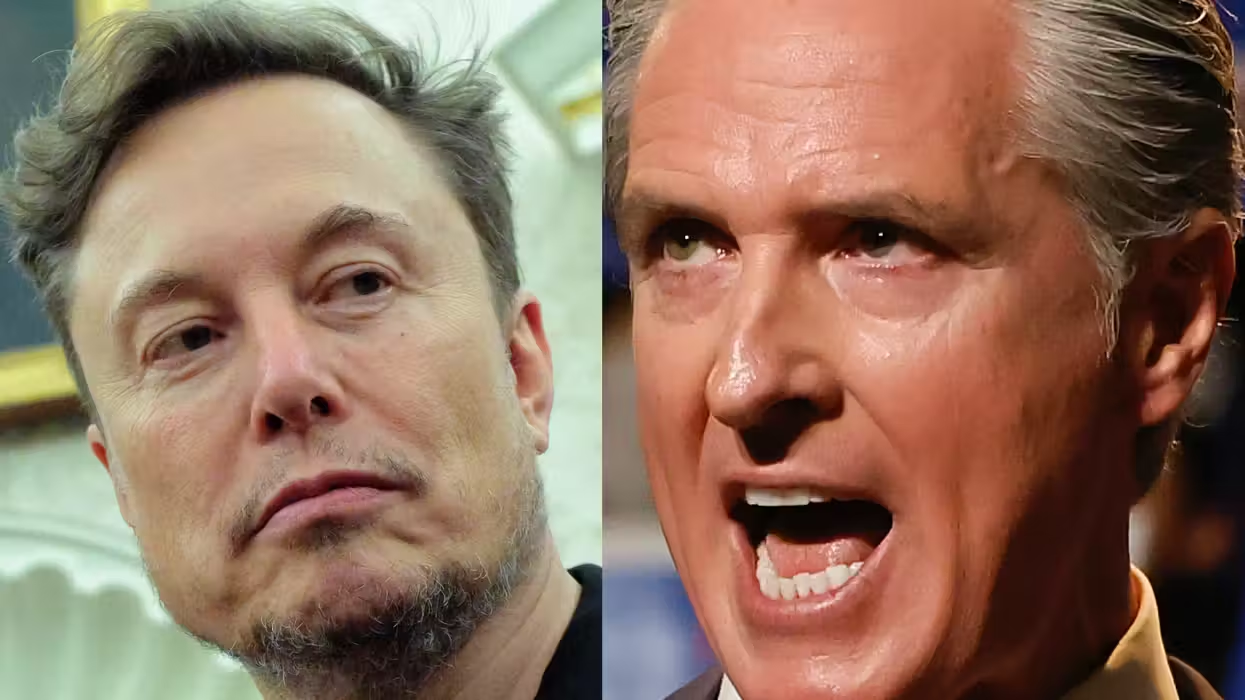
© 2025 Blaze Media LLC. All rights reserved.
Files reveal remarkable efforts of MI5 spy who inspired John le Carré's central character
March 05, 2014
In an article titled "The spy who turned Hitler’s British supporters into unwitting double agents" in The Telegraph, the newspaper outlines the heroic efforts of a World War II MI5 spy revealed through newly released documents from the National Archives some 25 years after his death.
John Bingham, an MI5 agent (and prolific spy novelist in his own right) who partly inspired John le Carré's George Smiley character, he of "Tinker, Tailor, Soldier, Spy," "The Spy Who Came in From the Cold" and numerous other works, according to the Telegraph's review of the documents was a "'genius' spy who pretended to be a German agent duped British Nazi sympathisers into revealing their secrets during the Second World War..."

Further:
Bingham, who was not named in the files but referred to by his pseudonym “Jack King”, uncovered disloyalty that “astonished” hardened spies.From 1942, he had direct contact with six men and women who believed he was working for the Gestapo and gave him information on “scores and probably hundreds” of sympathisers.
He gathered information on the aristocracy, the military and the intellectual elite, with one sympathiser claiming to have influence over Herbert Morrison, the home secretary at the time.
He also shed light on the fascist plans of Sir Oswald Mosley and “Hitler worshippers” such as George Pitt-Rivers, Churchill’s cousin.
...The sympathisers’ hatred for Britain, driven by anti-Semitism and the propaganda of Mosley’s group, was so strong that they “applauded” women and children being killed by German bombs, reports from Bingham show.
This spy operation known as "SR" was closed down in 1949 and "MI5 was unable to prosecute those involved for fear it would be accused of entrapment, and it was decided that telling the sympathisers they had been duped would push them further underground."
The release of these documents has generated some controversy over le Carré's treatment of Bingham.
Responding to a letter chastising le Carré for his criticism of Bingham's allegiance to the British Secret Services in the wake of the revelations from the newly released MI5 files, le Carré reiterated his reverence for Bingham as "a most honourable, patriotic and gifted man," but also challenged Bingham.
le Carré stated:
Where Bingham believed that uncritical love of the Secret Services was synonymous with love of country, I came to believe that such love should be examined. And that, without such vigilance, our Secret Services could in certain circumstances become as much of a peril to our democracy as their supposed enemies.
John Bingham may indeed have detested this notion. I equally detest the notion that our spies are uniformly immaculate, omniscient and beyond the vulgar criticism of those who not only pay for their existence, but on occasion are taken to war on the strength of concocted intelligence.
Want to leave a tip?
We answer to you. Help keep our content free of advertisers and big tech censorship by leaving a tip today.
Want to join the conversation?
Already a subscriber?
Ben Weingarten is a writer, commentator, and editor at large at RealClearInvestigations. He is a senior contributor at the Federalist and writes columns for Newsweek and the Epoch Times.
Ben Weingarten
Ben Weingarten is a writer, commentator, and editor at large at RealClearInvestigations. He is a senior contributor at the Federalist and writes columns for Newsweek and the Epoch Times.
more stories
Sign up for the Blaze newsletter
By signing up, you agree to our Privacy Policy and Terms of Use, and agree to receive content that may sometimes include advertisements. You may opt out at any time.
Related Content
© 2025 Blaze Media LLC. All rights reserved.
Get the stories that matter most delivered directly to your inbox.
By signing up, you agree to our Privacy Policy and Terms of Use, and agree to receive content that may sometimes include advertisements. You may opt out at any time.






